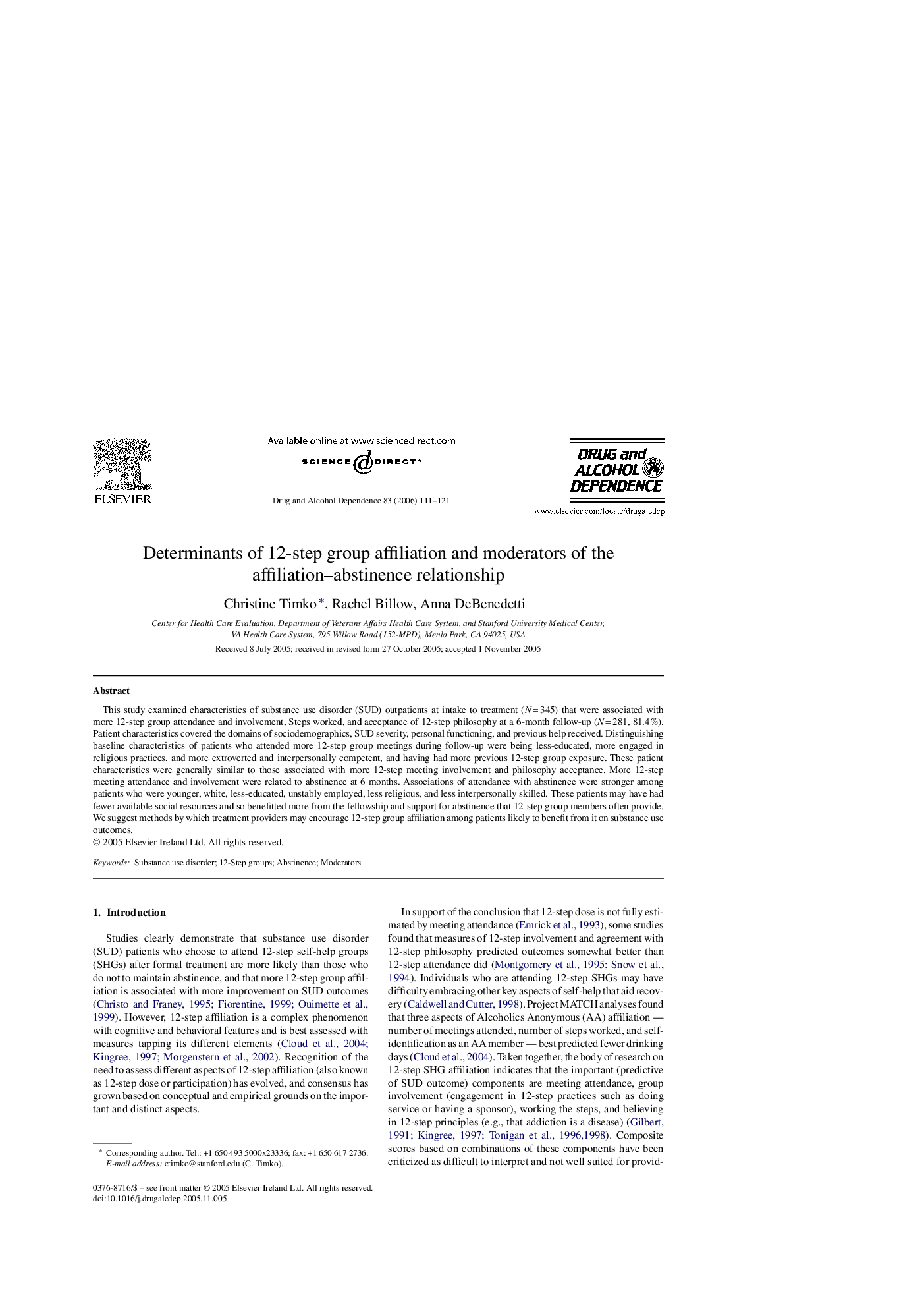| Article ID | Journal | Published Year | Pages | File Type |
|---|---|---|---|---|
| 1071848 | Drug and Alcohol Dependence | 2006 | 11 Pages |
This study examined characteristics of substance use disorder (SUD) outpatients at intake to treatment (N = 345) that were associated with more 12-step group attendance and involvement, Steps worked, and acceptance of 12-step philosophy at a 6-month follow-up (N = 281, 81.4%). Patient characteristics covered the domains of sociodemographics, SUD severity, personal functioning, and previous help received. Distinguishing baseline characteristics of patients who attended more 12-step group meetings during follow-up were being less-educated, more engaged in religious practices, and more extroverted and interpersonally competent, and having had more previous 12-step group exposure. These patient characteristics were generally similar to those associated with more 12-step meeting involvement and philosophy acceptance. More 12-step meeting attendance and involvement were related to abstinence at 6 months. Associations of attendance with abstinence were stronger among patients who were younger, white, less-educated, unstably employed, less religious, and less interpersonally skilled. These patients may have had fewer available social resources and so benefitted more from the fellowship and support for abstinence that 12-step group members often provide. We suggest methods by which treatment providers may encourage 12-step group affiliation among patients likely to benefit from it on substance use outcomes.
